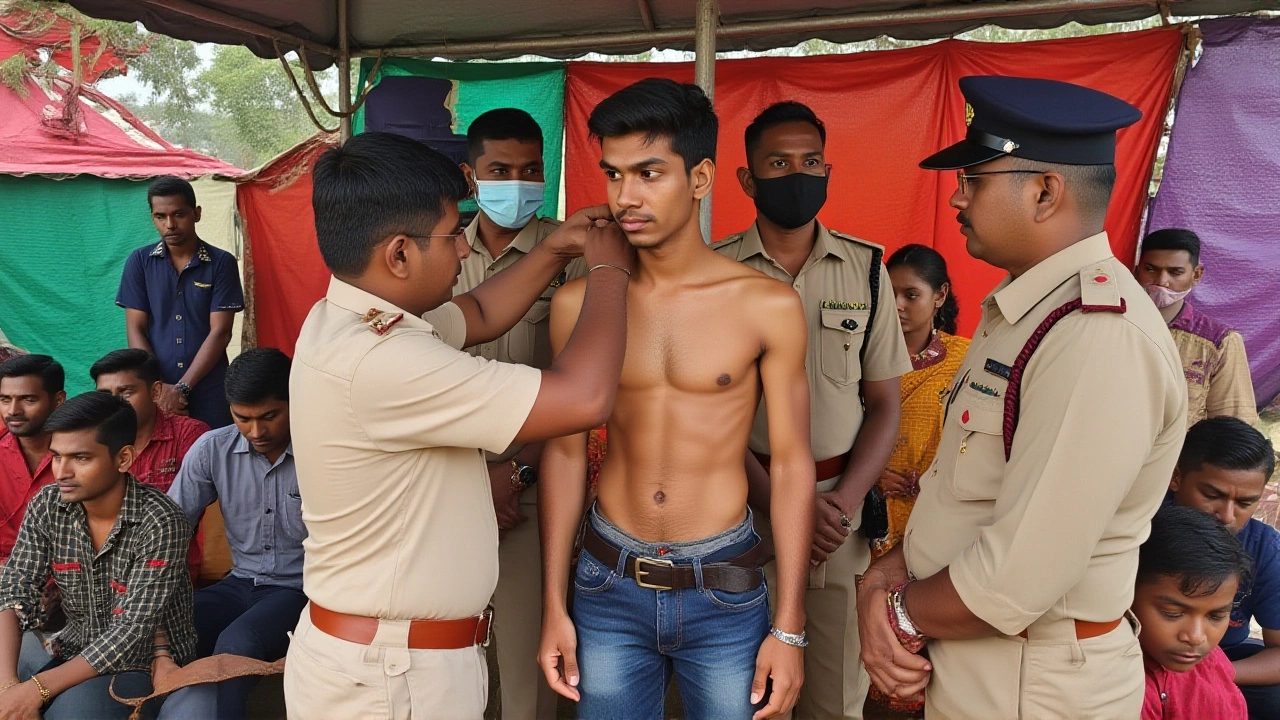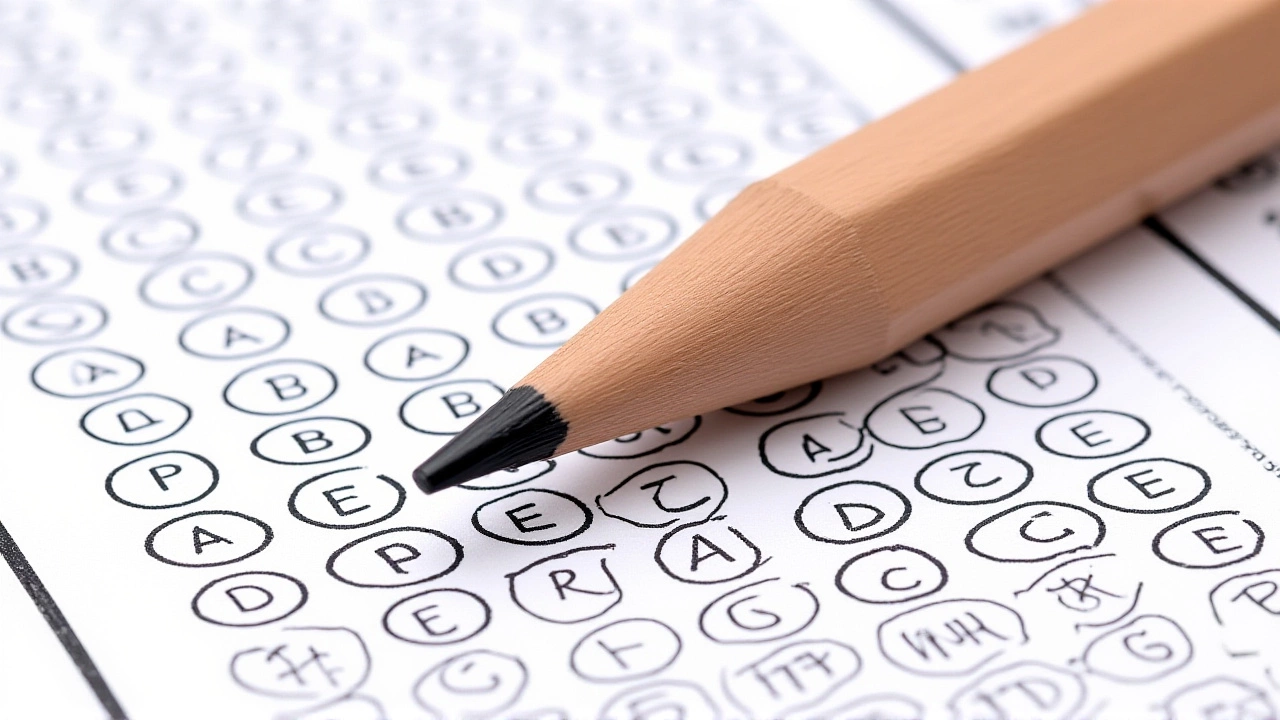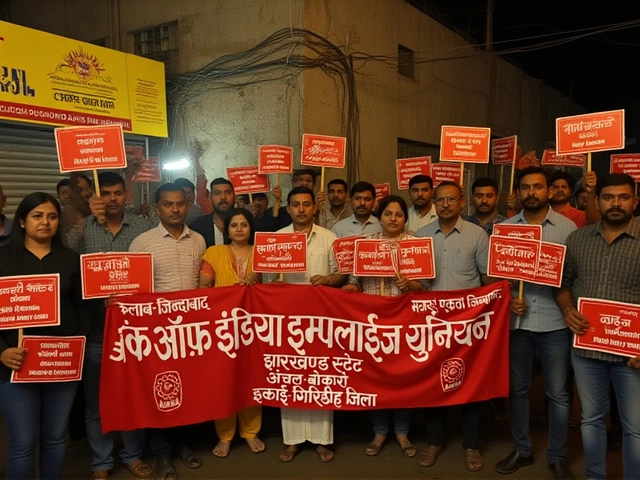When Azad, a 25‑year‑old candidate, walked into the RPF constable examination hall in Sector 62, Noida, he wasn't just another hopeful aspirant; he was about to test the limits of exam security with a hidden Bluetooth device.
The plot was hatched by his brother Aslam, who contacted Amit Dagar, an employee of the private examination centre IDZ 2. On March 7, 2024, Dagar slipped the tiny Bluetooth earpiece into Azad’s ear and placed a second transmitter under the candidate’s desk.
How the cheat was uncovered
An invigilator noticed Azad repeatedly touching his ear and, sensing something amiss, asked him to step aside. A quick visual check revealed a minuscule earpiece, while a sweep of the desk uncovered a second Bluetooth module.
Amit Kumar, Station House Officer of Sector 58 Police Station, confirmed that the device was actively paired with a hidden SIM card, suggesting that someone was feeding answers in real time.
The investigation and arrests
Following the discovery, the exam centre in‑charge Bhavnesh Pachauri filed a written complaint. Within hours, the police detained Azad and Dagar at the centre’s entrance.
The FIR listed six suspects, including two intermediaries – Rahul and Pankaj – who received an advance of ₹50,000 as part of a ₹4 lakh deal.
- ₹4 lakh total payment for the cheating kit.
- ₹50,000 paid upfront to Rahul and Pankaj.
- Charges filed under sections 318(4) and 61(2) of the Bharatiya Nyaya Sanhita and the Uttar Pradesh Public Examination (Prevention of Unfair Means) Act.
A special police team was constituted to track the remaining conspirators and to identify the person who was allegedly whispering answers over the phone while Azad was writing.

The wider pattern of cheating in RPF exams
The Noida case isn’t isolated. In April 2024, four Haryana residents were nabbed in Himachal Pradesh for using similar Bluetooth gear during an RPF constable test at Maharaja Agrasen University, Barotiwala. One of them, Rahul (not the same Rahul from Noida), was caught with a battery, SIM card, and an earpiece after a hand‑held metal detector beeped.
Later that month, Mumbai police arrested a 25‑year‑old who tried the same trick at a police recruitment exam in Jogeshwari West. His device, however, suffered poor network reception, forcing him to make multiple bathroom trips to boost the signal – a move that only drew more attention.
Even Lucknow saw a similar incident during the RPF sub‑inspector examination at UV Online Solution, where a candidate named Akash was caught with a Bluetooth gadget and handed over to the local police.
These episodes expose a growing underground market for high‑tech cheating kits, often coordinated through freelance “solver” gangs that market services to desperate job‑seekers.
Legal repercussions and expert view
Legal experts note that the combination of the Bharatiya Nyaya Sanhita and the newer Public Examination (Prevention of Unfair Means) Act 2024 gives authorities a broader toolkit to prosecute organized cheating rings. "The law now treats large‑scale cheating as a serious criminal conspiracy," says Legal Analyst Priya Sharma, senior counsel at the Delhi Bar Association.
From a security standpoint, the Railway Recruitment Board (RRB) has announced plans to introduce biometric verification and AI‑driven monitoring at upcoming exams. However, officials admit that no single measure can be foolproof without rigorous on‑ground vigilance.

Future steps for exam security
Authorities are now exploring multi‑layered defenses:
- Enhanced metal detectors calibrated to spot ultra‑small Bluetooth units.
- Randomized seating arrangements combined with live video analytics.
- Strict background checks for all exam‑centre staff.
- Legal deterrence through swift prosecution under the new act.
While technology will inevitably evolve, experts argue the real battle is cultural – reducing the desperation that drives candidates to risk their futures for a shortcut.
Frequently Asked Questions
How does this cheating scandal affect future RPF exam candidates?
The incident has prompted the Railway Recruitment Board to tighten security protocols, meaning upcoming candidates will face stricter invigilation, more sophisticated metal detectors, and possible biometric checks, raising the bar for entry but also improving the fairness of the selection process.
What legal sections were invoked against the suspects?
The FIR cites sections 318(4) and 61(2) of the Bharatiya Nyaya Sanhita for cheating and criminal conspiracy, alongside provisions of the Uttar Pradesh Public Examination (Prevention of Unfair Means) Act, 2024, which specifically targets organized exam fraud.
Who were the main orchestrators behind the Noida cheating plot?
According to the investigation, the scheme was masterminded by the candidate’s brother Aslam, who paid exam‑centre employee Amit Dagar a total of ₹4 lakh, with an upfront ₹50,000 transferred to intermediaries Rahul and Pankaj.
Are similar cheating methods being reported elsewhere in India?
Yes. Recent arrests in Himachal Pradesh, Mumbai, and Lucknow demonstrate a pattern of using covert Bluetooth gadgets to receive answers during government recruitment exams, indicating a coordinated network of ‘solver’ gangs across several states.
What steps are being taken to prevent future cheating attempts?
The RRB plans to deploy AI‑driven monitoring, enforce random seat assignments, install advanced metal detectors, and conduct thorough vetting of exam‑centre personnel. Additionally, the new Public Examination (Prevention of Unfair Means) Act empowers swift legal action against organized fraud.



